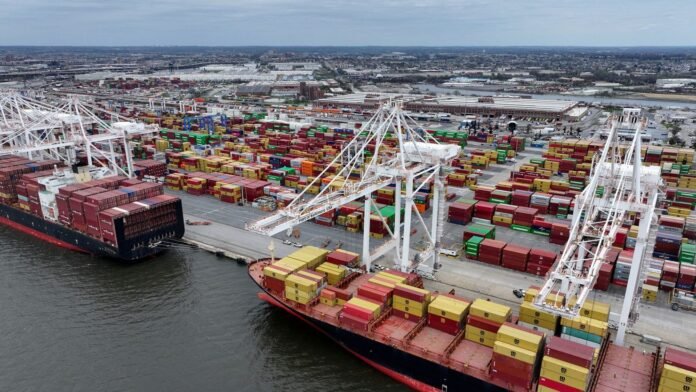Bad things can happen when a president appears disconnected from reality. Following a day marked by stock market shocks and global recriminations, questions are mounting about whether President Donald Trump fully understands the impact of his aggressive tariff strategy—a move that has fueled a global trade war.
Conflicting Messages Amid Economic Turmoil
After announcing his “Liberation Day” tariffs just a day earlier, President Trump confidently proclaimed, “I think it’s going very well,” comparing the operation to a major medical procedure. “The markets are going to boom. The stock is going to boom. The country is going to boom,” he declared. Yet, the market reaction tells a different story.
In the wake of his tariff blitz, Wall Street experienced its worst day in five years. More than $2.5 trillion was wiped off the S&P 500 index as global investors reeled from the repercussions of Trump’s decision. The chaos extended far beyond Wall Street, with American seniors facing the grim reality of dwindling market-linked retirement accounts.
Divergent Views on the Tariff Strategy
While Vice President JD Vance remained upbeat—remarking to Newsmax that “we’re feeling good” despite the turmoil—Trump’s own statements have revealed a confusing strategy. On Air Force One, he described the tariffs as a “bargaining position” to negotiate better deals, yet top officials like Commerce Secretary Howard Lutnick and trade adviser Peter Navarro were unequivocal in asserting that these tariffs were not up for negotiation.
Critics argue that the president’s conflicting messages and his cavalier use of tariffs could have far-reaching consequences. Veteran Wall Street trader Peter Tuchman expressed his disbelief, stating, “They know nothing,” and lamented the nonsensical formula used to calculate the new tariff rates. “It’s like apples, oranges, a couple of cashews divided by 10 times four,” he remarked, underscoring the market’s confusion and the billions of dollars evaporating each day.
The Risk of Price Hikes and Economic Downturn
Financial experts warn that Trump’s tariff measures could lead to painful price hikes on consumer goods and a resurgence of inflation. This concern comes on the heels of Trump’s campaign promises to cut the cost of food and housing—a promise that now seems increasingly out of reach. The immediate fallout was visible when Stellantis, the manufacturer behind Chrysler and Dodge, paused production at plants in Mexico and Canada, temporarily laying off 900 US workers.
Economists like Larry Hu from Macquarie Group estimate that the aggressive tariff escalation could reduce China’s economic growth by up to 2.5 percentage points this year, potentially triggering a global economic slowdown. As American factory jobs continue to decline and supply chains are disrupted, the repercussions of Trump’s trade war may extend well beyond short-term market fluctuations.
The High Stakes of Trump’s Economic Gambit
President Trump’s current strategy—marking a second term defined by bold, and some say reckless, power grabs—has raised serious concerns about his grasp on economic policy and national security. His critics compare his approach to past presidential missteps, citing Lyndon Johnson’s Vietnam policies, George W. Bush’s handling of the Iraq insurgency, and the controversial exit from Afghanistan under President Joe Biden.
As markets teeter on the brink of a potential recession, Trump’s supporters and detractors alike are watching closely. Republican pollster Kristen Soltis Anderson warned, “The challenge these tariffs are going to present is that they are almost certainly going to raise the cost of living for Americans at least in the short-term.” Meanwhile, trade adviser Peter Navarro insisted that any price increases would be offset by a stronger US currency and improved purchasing power for imports.
Conclusion: A Test of Trump’s Economic Strategy
With the global trade war intensifying and the stock market experiencing unprecedented declines, President Trump faces an uphill battle in convincing Americans that his tariff strategy will lead to long-term prosperity. As his administration doubles down on these controversial measures, the coming days will determine whether his economic gamble will pay off—or if the temporary pain will evolve into a lasting recession that challenges his political future.

